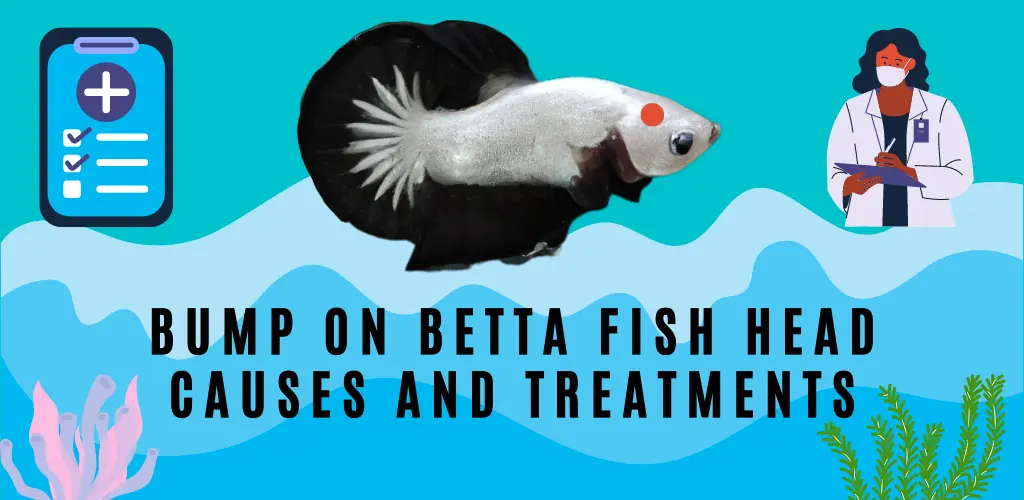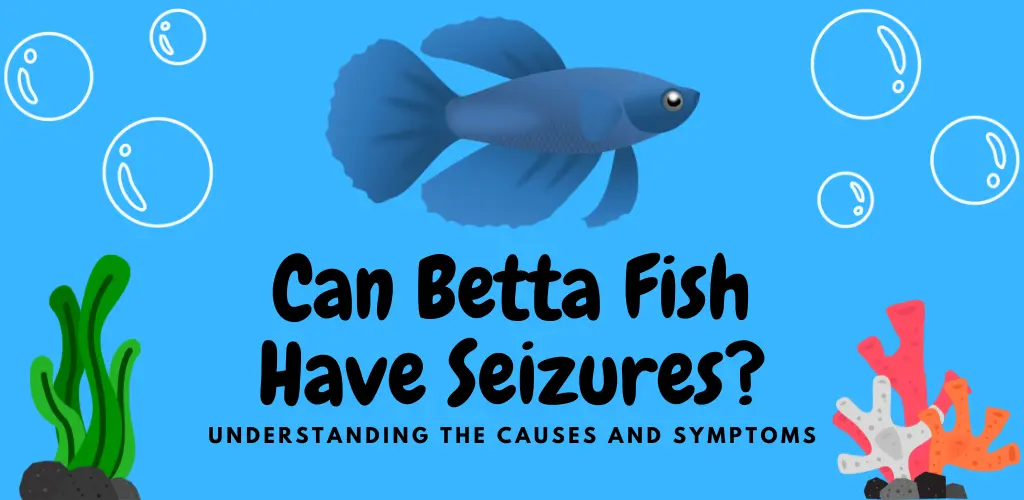Betta fish, or Siamese fighting fish, are popular pets for their bright colors, fascinating behavior, and ease of care. However, like other aquatic animals, Betta fish are susceptible to various health problems, including a bump on their head.
Symptoms of a Bump on Betta Fish Head
Symptoms of a bump on a Betta fish’s head may include a minor, raised, round or oval-shaped swelling on the forehead or crown of the fish. In some cases, the bump may be red or discolored, and it may be accompanied by other symptoms such as lethargy, loss of appetite, or abnormal swimming behavior.
Additionally, the fish may appear in pain and rub its head against objects in the tank. It’s important to note that these symptoms may also be present in other health conditions affecting Betta fish. A proper diagnosis by a veterinarian is crucial to determine the underlying cause of the bump and provide appropriate treatment.
Causes of a Bump on a Betta Fish’s Head:
Several factors can cause a bump on a betta fish’s head. The most common causes include tumors, cysts, and bacterial infections. Various factors, such as poor water quality, injuries, and genetic predispositions, can cause these conditions.
Tumors:
Tumors can develop in any part of the fish’s body and may appear as a lump on the head. Many different types of tumors can affect betta fish. Some are benign and pose no serious threat, while others are malignant and can be life-threatening.
Cysts:
Cysts can also form on the fish’s head and can be caused by various factors. In some cases, cysts can be caused by bacterial infections, which can cause inflammation and the formation of a fluid-filled sac on the fish’s head.
Bacterial Infections:
Bacterial infections are another common cause of bumps on a betta fish’s head. Various factors, such as poor water quality or fish head injuries, can cause these infections. In some cases, these infections can lead to the formation of an abscess, which can appear as a lump on the fish’s head.
What Body Parts Can You Find Bump On Bettas?

Bump on Betta Fish Head
Bumps on the head of a Betta fish are the most common type of bump, and several factors, including infections, trauma, or tumors, can cause them.
Bump on Betta Fish Belly
Bumps on the fins and body of a Betta fish may also result from infections. Still, parasitic infestations or physical injuries can also cause them parasitic infestations or physical injuries can also cause them. In some cases, the bumps may appear as small white or yellow lumps along the fins or body, while in other cases, they may be more extensive and cover large areas of the fins or body.
Bump on Betta Fish
Betta fish may develop multiple bumps on different body parts, which can signify a more serious underlying health condition. In such cases, it’s essential to seek veterinary care as soon as possible to prevent further health problems and improve the chances of a successful recovery.
How to Treat a Bump on a Betta Fish’s Head:
Bacterial Infections:
If a bacterial infection causes the bump on your betta fish’s head, your veterinarian may prescribe antibiotics to help clear the infection. It’s essential to administer the medication as directed and complete the entire course of treatment to ensure the infection is fully resolved.
Surgical Removal:
Surgical removal may be necessary if a cyst or tumor causes the bump. This is a delicate procedure and should only be performed by a trained veterinary professional. Surgery may involve removing the entire bump or a portion of it, depending on the size and location of the growth.
Maintain Clean Water Conditions:
In addition to medication or surgery, it’s crucial to maintain clean water conditions in the fish tank to help prevent any further infections or complications. You can perform regular water changes and ensure the water parameters are appropriate for your fish species.
Seek Veterinary Care:
It’s important to note that bumps on a betta fish’s head can be a sign of an underlying health issue, and it’s crucial to determine the cause of the bump and provide appropriate treatment. If you notice a bump on your betta fish’s head, it’s recommended to seek veterinary care as soon as possible to diagnose the cause and determine the best course of treatment.
How To Prevent Bump On Betta Fish Head?

There are several steps you can take to prevent bumps on the head of your Betta fish:
Maintain Good Water Quality: A healthy aquarium environment is essential for your Betta fish’s overall health and well-being. Ensure that the water temperature, pH, and hardness levels are within the recommended range for Betta fish, and perform regular water changes to remove any accumulated waste and toxins.
Proper Diet: Feed your Betta fish a balanced and varied diet to ensure they receive all the necessary nutrients. Avoid overfeeding, as this can lead to digestive problems and an unhealthy environment in the aquarium.
Avoid Rough Handling: Betta fish are delicate creatures, and rough handling can cause physical injuries that can lead to bumps on the head. Always handle your Betta fish gently and avoid exposing them to sharp objects or rough surfaces in their aquarium.
Minimize Stress: Betta fish are sensitive to stress; long-term stress can weaken their immune system and make them more susceptible to health problems. Provide your Betta fish with plenty of hiding places and avoid overcrowding the aquarium.
Regular Check-ups: Regularly inspect your Betta fish for abnormal behavior or physical symptoms, such as bumps on the head. If you notice any unusual bumps, take your Betta fish to a veterinarian for a proper diagnosis and treatment.
By following these simple steps, you can help prevent bumps on the head of your Betta fish and ensure they remain healthy and happy.
Conclusion
A bump on a Betta fish’s head can signify various health problems, from infections to tumors. If you suspect your Betta fish has a bump, it must be taken to a veterinarian for diagnosis and treatment. You can help keep your Betta fish healthy and bump-free with proper care and attention.
Frequently Asked Questions
Q: What causes bumps to appear on the Betta fish head?
Bumps on Betta fish head can be caused by various reasons such as bacterial or fungal infections, parasites, tumors, and even physical injuries.
Q: Can bumps on Betta fish head be harmful to the fish?
Yes, bumps on the Betta fish head can be harmful and may cause discomfort to the fish. In some cases, bumps can also be a symptom of an underlying condition that may need to be treated to prevent the fish from getting sicker.
Q: How can I treat bumps on my Betta fish head?
Treatment for bumps on the Betta fish head depends on the underlying cause. Antibiotics or antifungal treatments may be necessary for bacterial or fungal infections. For parasites, specific medications can be used to treat the infestation. In the case of tumors or physical injuries, there may be limited treatment options.
Q: Can I prevent bumps on my Betta fish head?
You can prevent bumps on Betta fish head by keeping good water quality, providing a healthy diet, and avoiding overcrowding in the fish tank. Regularly monitoring your fish and keeping the tank clean can help avert bacterial and fungal infections, which can cause bumps on the fish’s head.
Q: When should I seek veterinary assistance for my Betta fish with bumps on its head?
If you notice any unusual bumps on your Betta fish head or other symptoms, such as lethargy, loss of appetite, or abnormal swimming behavior, it’s better to pursue veterinary help directly. Early intervention can help control the condition from deteriorating and improve the chances of a full recovery.





Pingback: Will Betta Fish Kill Mollies: Explained - Betta Fish Advice
Pingback: Betta Fish Getting Stuck To Filter Intake: Causes And Treatment - Betta Fish Advice